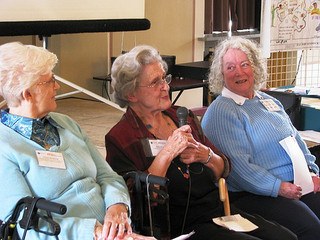
Elder abuse has many forms. According to the National Council on Aging, up to 5 million older Americans are abused every year, and the annual loss by victims of financial abuse is estimated to be at least 2.6 billion.
Abuse could be physical or emotional by adult, children, grandchildren, neighbors or caregivers. Financial abuse could be from the same group or organizations working on behalf of seniors. Healthcare abuse/fraud is caused by overbilling for the same visit/procedure or mismanaging medications.
How do you recognize the warning signs of elder abuse? The National Center on Elder Abuse suggests you watch for these indicators. Keep in mind that while one sign doesn’t necessarily indicate abuse, it’s important to be alert and document what you find.
- Bruises, pressure marks, broken bones, abrasions, and burns may be an indication of physical abuse, neglect, or mistreatment.
- Unexplained withdrawal from normal activities, a sudden change in alertness, and unusual depression may be indicators of emotional abuse.
- Bruises around the breasts or genital area can occur from sexual abuse.
- Sudden changes in financial situations may be the result of exploitation.
- Bedsores, unattended medical needs, poor hygiene, and unusual weight loss are indicators of possible neglect.
- Behavior such as belittling, threats and other uses of power and control by spouses are indicators of verbal or emotional abuse.
- Strained or tense relationships, frequent arguments between the caregiver and elderly person are also signs.
While some indicators may also seem like typical signs of aging or dementia, it’s important you follow your gut. You know your friend or loved one better than anyone – prevention starts with you. Read NCEA’s section on Factsheets & Publications for more information about how you can prevent elder abuse or visit the Elder Justice Coalition.
Our work is devoted to sparking the lives of people in the second half of life. And yet, this group can be vulnerable. June 15 is National Elder Abuse Day. Help us ignite the conversation to stop abuse, recognize the signs and protect the dignity and purpose of those we hold dear.
Together, we can spark lives of everyone in the second half of life and stop elder abuse. Join the conversation: What’s been your experience with elder abuse? How did it impact your life?? And what advice would you share with others?
PROTECT ON!



